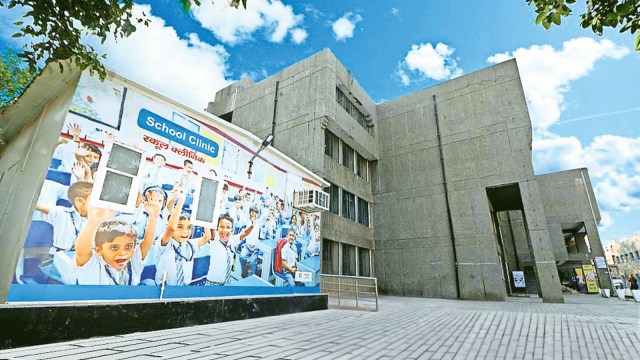Anxiety, bullying: Year-long project offers insights into mental health of Delhi children
For counsellor Simran Kaur, her sessions showed children were worried about bullying, not being able to concentrate on their studies, and not knowing how to build interpersonal relationships with family and friends.
 Counsellors conducted sessions with more than 20,000 students in 20 schools during the project.
Counsellors conducted sessions with more than 20,000 students in 20 schools during the project.Over the past year, counsellor Lovisha Arora conducted special sessions, including engaging art classes, for students at a Delhi government school to help them understand their emotions. A year later, insights gathered from her teaching have provided crucial perspectives on the mental health of Delhi’s school-going children.
As part of an initiative called School Mental Health, the Delhi government partnered with the Institute of Human Behaviour and Allied Science (IHBAS) to provide primary mental health services in schools under the Directorate of Education and capture how kids from Classes VI to XII grappled with mental health problems and bullying.
Lovisha, among 20 counsellor psychologists, was deployed to the school in the New Delhi district after training from clinical psychologists at IHBAS. During the year-long project, where counsellors conducted sessions with more than 20,000 students in 20 schools, it was found that things changed drastically post the pandemic.
“When children came back to school, issues such as anger, screen addiction, and anxiety were more visible… children would harm themselves, get involved in alcohol and tobacco consumption and not attend school,” said Lovisha.
While the project has been on the table since 2016, it was the pandemic that sped up efforts to implement it. “The children had seen a bad time. Many lost their parents, family members, and valuable time of their childhood,” said an official from the state health department.
For counsellor Simran Kaur, her sessions showed children were worried about bullying, not being able to concentrate on their studies, and not knowing how to build interpersonal relationships with family and friends.
During the project, Simran did a painting activity where students were asked to colour their fingers with each colour representing feelings such as anger, sadness, happiness, fear, disgust, and shame. “Many children painted their whole palm red, which stood for anger. Later we learned that they have been dealing with this emotion for a long time,” she said.
According to Dr Aparna Goyal, assistant professor at IHBAS who was a part of the project, around 200 children from various schools were referred to higher centres for specialised care: “However, not many showed up. Almost 15 were referred to IHBAS, but only 6-7 followed up with the sessions.”
What are the reasons?
Why do schoolchildren suffer from anxiety? Dr Aparna said students of classes X, XI and XII had anxiety related to their careers, board exams, and relationships. “This is the age when you want to explore new things and where you try to act like an adult but are not an adult exactly,” she added.
For kids in classes VI to IX, the struggle was maintaining good peer relationships. If they are being bullied in class, then it could lead to anxiety.
A common issue among class VI-XII students was the lack of conversation between them and their parents, which made them angry and anxious. Further, students from lower-income groups lacked parental support. “These kids are deprived of conversations with their parents… as they try to make ends meet or are overburdened with work. Parents too are concerned if the child suffers a physical injury, but not so if they have mental health issues,” Dr Aparna said. In many instances, counsellors and the IHBAS team had to push family members to discuss how they could help their kids. In one instance, a child had reported self-harm thoughts and needed to be sent for further treatment but the family said the child was just fooling around.
When it comes to bullying, a background of aggression plays a major role. “Kids may have been witness to domestic violence or heard crass language being used. They have not been given a very safe environment… Further, children exposed to excessive screen time end up watching porn and violent films… This too results in bullying,” she said.
She said while the counsellors did not encounter many bullies, they found many who were bullying victims. “These kids stopped going to school for a long time… If a child says he has mental health issues, they get bullied… are called ‘Pagal’, ‘Dimag se paidal’. Even teachers unknowingly use words which are not very acceptable to kids. However, that is due to unawareness and non-sensitisation,” she added.







